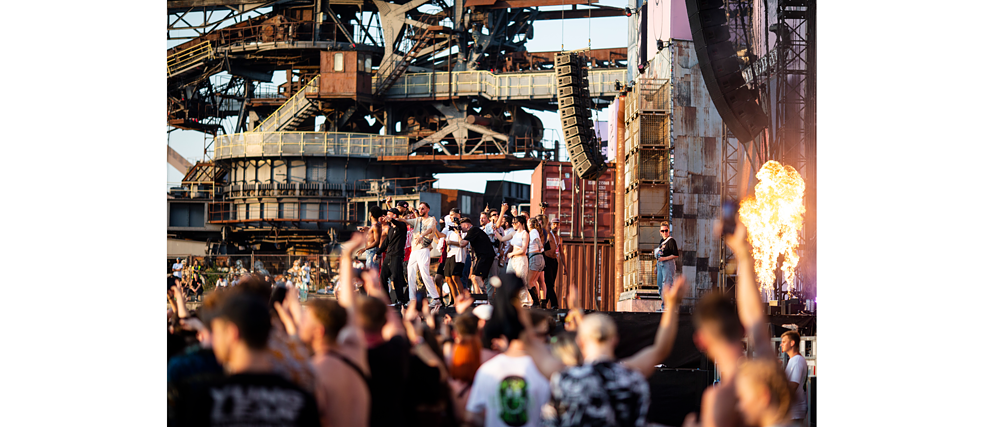When the coal mines were shut down, little remained in the village of Gremmin but an immense hole and some abandoned construction equipment. Yet out of the desolate landscape grew something new: Ferropolis, the city of iron.
In 1982, open-pit lignite mining reached the region east of Dessau – and that was the end of Gremmin. Huge diggers arrived and tore down the village and its houses. Coal was extracted there for around nine years, leaving behind nothing but a massive hole. But did that mean Gremmin was now lost forever? No! The abandoned pit is now more full of life than ever before.
Martin Brück, an architecture student who wanted to write his dissertation at the nearby Bauhaus Foundation, came up with an idea for a brighter future: the gigantic industrial machines and diggers that had been left behind could be transformed into a rather special outdoor museum and event location. And that’s exactly what happened. At the start of the new millennium, the big hole was turned into a lake, and the bucket-wheel excavators and other machines became a stylish backdrop for music festivals and other events. Ferropolis was born: a place where the past meets the future.
Anything goes here, be it a heavy metal concert or German rap festival, a classical orchestra or East German rock band, a Mallorca party or pyro games – and the gargantuan machines create an exceptional atmosphere. Some of the old excavators are over 30 metres high and more than 100 metres long. Two of these spectacular mining machines can be visited, and one even features a lift for barrier-free access.
Whereas open-pit lignite mining had done nothing but devastate the environment, Ferropolis nowadays is all about education and renewable energies. Groups of schoolchildren from the surrounding area can learn about sustainability and environmental protection here. Not only is there a training and experimentation room, but also a museum about the history of mining. And the skeleton of a forest elephant that is supposed to have lived here 120,000 years ago is likewise on display.
The idyllic lakes are the perfect place to swim and relax. Walking and cycling trails are a good way to explore the area. Ferropolis even has a registry office: anyone planning to marry a digger fan in the near future should ask about booking their wedding here.
DETOURS
What does Görliwood mean, why can you find a piece of the Caribbean in Bavaria and where can you dance in front of bucket wheel diggers? In our series we take you on a trip each month to somewhere in Germany that you may not yet know but should definitely be introduced to. We reveal places that are not to be found on the usual tourist trails. Are you ready for a bit of a detour?
January 2024




